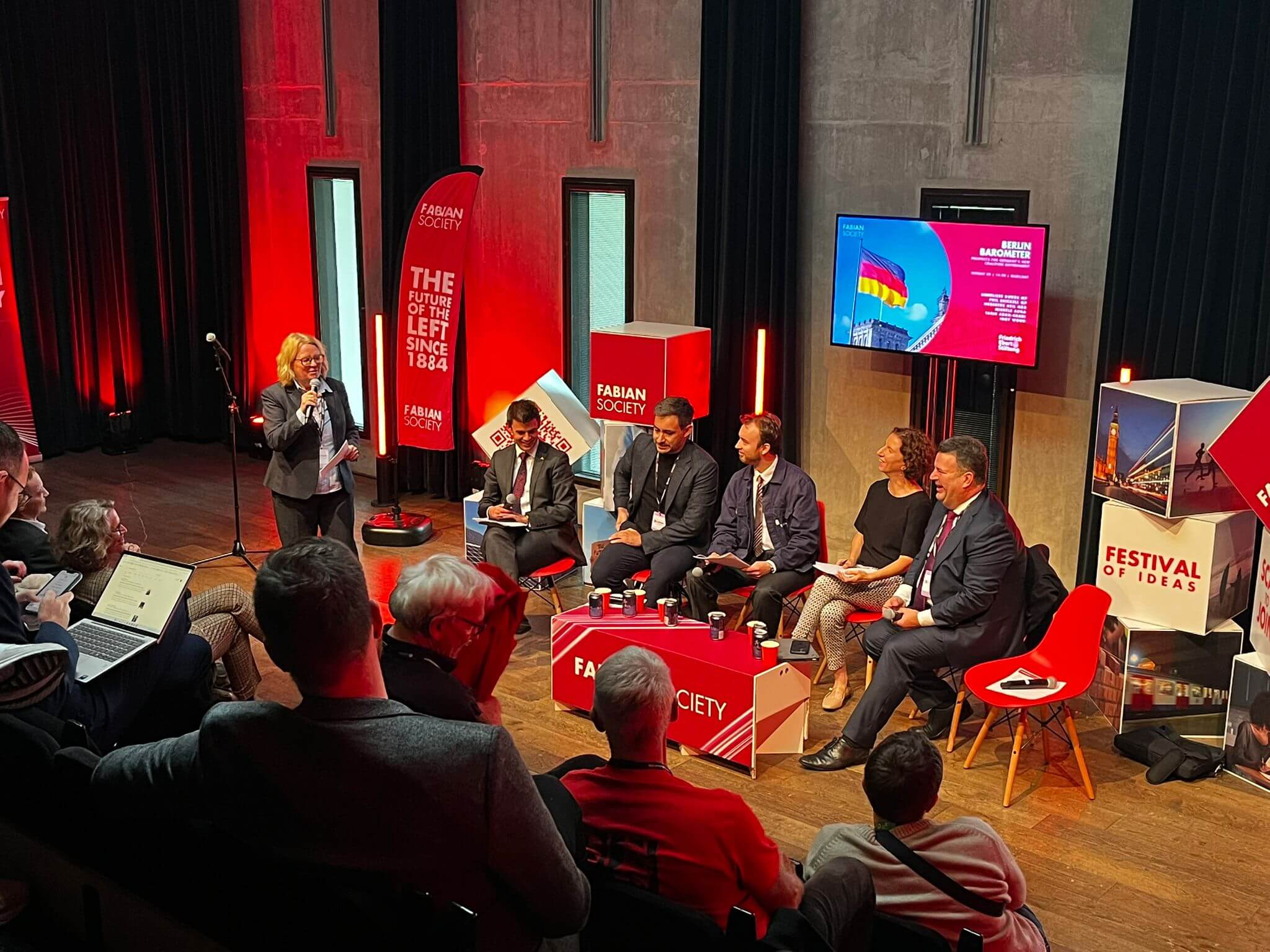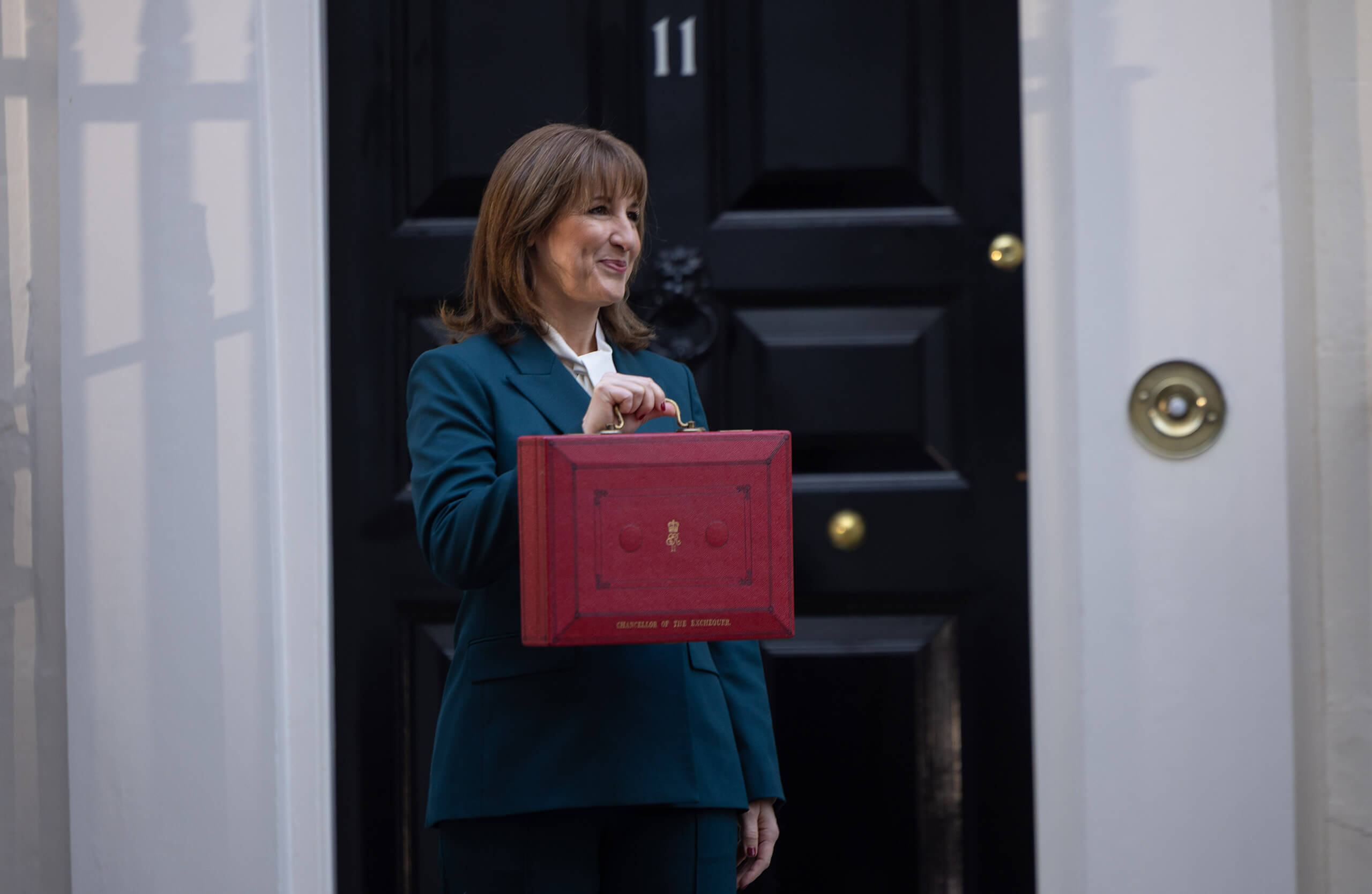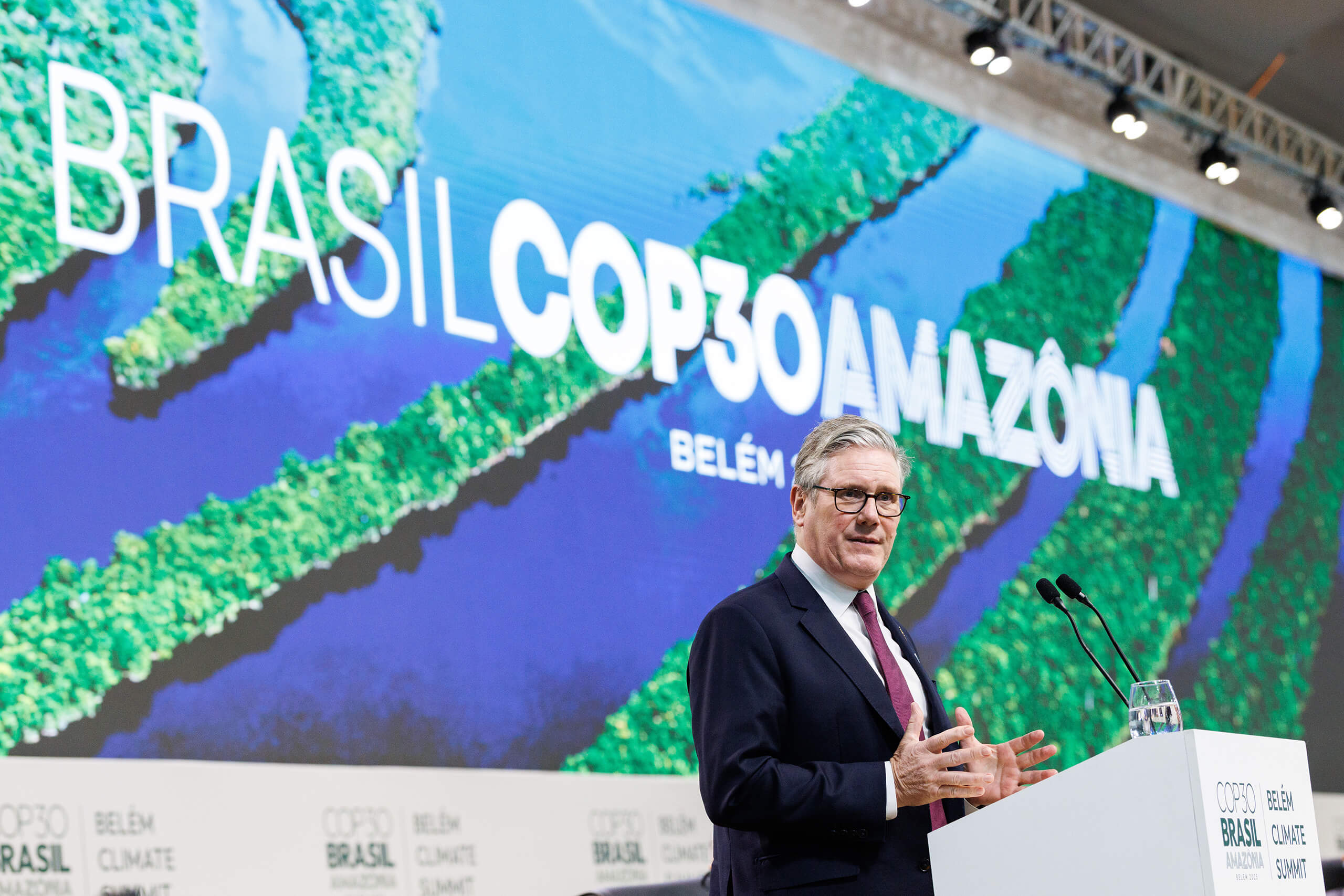Expectations for the Labour Party conference in Liverpool weren’t high. Sat on a train with stony-faced NEC members and officials from the party’s senior communications team, you could almost hear collective mutters of discomfort as we passed through the final station before Liverpool – Runcorn. The by-election there in May had seen Reform beat Labour by just six votes, a stark reminder of the party’s missteps and the erosion of support on both left and right.
Domestic politics can be unpredictable. But Liverpool, and the 2025 Labour Conference, was about more than that – it was about Britain’s role in the world. And that’s where the real stakes were.
For anyone in foreign policy, the conference offered a rare glimpse into how Labour now governs. From self-determination movements to social democracy under pressure and from humanitarian crises to global partnerships, the sessions revealed a party trying to act decisively in a messy, often unforgiving world.
The UK as an honest broker and promoter of self-determination
Kurdistan came up early and frequently. The discussion was frank and touched on the region spanning Syria, Türkiye, and Iraq. In the latter, speakers told of how constitutional guarantees around oil, gas, and disputed territories have been ignored since 2005. Corruption, tribal influence, and weak governance have made practical progress difficult. Speakers argued the UK could help by training civil servants, supporting women, advising on governance, but only if it approached the situation with humility. Past interventions, including the 2003 war in Iraq, complicate any claim to neutrality.
The emphasis was on realistic support: economic independence, inclusive government, and anti-corruption measures. Security, stability, and prosperity are intertwined, and ignoring one undermines the others. And yes, it was noted more than once that some Kurdish cities are safer than London. That’s not just a statistic, it struck a chord about perception versus reality.
For events relating to the Middle East, Palestine dominated debates. Two motions clashed. Motion 2, backed by trade unions, called for a full suspension of arms sales to Israel and celebrated the UK recognising Palestine. Motion 1 focused on Hamas’ October 7 attacks and the need for a two-state solution. Motion 2 passed, which shows Labour is willing to take a stand even when internal consensus is fractured.
In her speech, Foreign Secretary Yvette Cooper framed recognition as a starting point, not a substitute for action. Aid must reach civilians. Hostages must be freed. Hamas must have no role in governance. The underlying lesson from Kurdistan and Palestine is similar: the UK can provide tools and advice, but local actors determine whether progress is possible. Intervention works best when it’s grounded in history, context, and an awareness of past missteps.
Social democracy under pressure
A recurring theme was the fragility of social democracy. Germany, Spain, Finland, Denmark – centre-left parties are winning elections, but with historically low vote shares. Hollow victories. Germany’s SPD and UK Labour face populist pressure while trying to manage economic and social challenges. It was striking how similar the challenges feel across countries.
Hubertus Heil, a German MP for the SPD, described the personal strain: being a social democrat today can be demoralising. But there are lessons elsewhere. Gretchen Whitmer’s recent Michigan campaign, for example, focused on tangible improvements in daily life – roads, healthcare, childcare epitomised by simple yet effective slogans such as ‘get that damn bridge fixed’. It’s a reminder that ideology alone doesn’t win votes; people want results. Labour, and European social democrats more broadly, need to combine moral vision with practical policies that impact daily life.
Post-Brexit Europe came up as well. A fascinating outline of a report by the Good Growth Foundation’s Louisa Dollimore indicated that some Reform voters may be more sympathetic to rejoining the EU citing economic uncertainty and the rising cost of living, unpredictable and unreliable US authority in the West, and the ongoing threat from Putin in the East. Research, obtained via focus groups, found that Reform voters see the EU as a constant – a stable bloc to allay their fears from the East, West, and from their pocket. Yet, more generally, Labour officials emphasised engagement – security, trade, and development – not reintegration into the EU. The tension is real: Europe is shifting right in places, but the UK still needs to cooperate. The takeaway: social democracy must defend its values while demonstrating competence. Ideals without outcomes risk irrelevance.
Global partnerships and the UK’s role
Trade deals were a frequent topic. Labour highlighted agreements with India, the US, and the EU. Security matters, too – NATO commitments, China strategy, and migration agreements with France. The message was consistent: credibility abroad reinforces domestic capacity.
The Global South was another focus. Delegates argued that aid alone isn’t enough. Fragile states need investment, knowledge sharing, and support for self-sufficiency. Labour frames this as being an ‘activist investor’ rather than a donor. The emphasis is on amplifying local voices rather than imposing solutions. This approach also benefits the UK domestically: migration pressures, security concerns, and economic opportunities are linked to international credibility. Acting responsibly abroad strengthens the country at home.
Crisis, conflict, and accountability
Humanitarian crises were front and centre. Famine, disease, and war affect real people, not statistics. Delegates argued that billions spent on asylum hotels domestically could be better invested in fragile economies, helping reduce the need for dangerous migration. Aid must combine immediate relief – food, healthcare, education – with long-term governance and investment strategies.
The Israel-Gaza situation illustrated the challenge. Labour (and now the UK) recognises Palestine while also holding Israel accountable. Motion 2’s passage reflects this dual approach: halting arms sales, supporting civilians, and applying diplomatic pressure. Yet debates over Hamas show the difficulty of balancing principle with pragmatism. Sometimes there isn’t a perfect solution – only choices that reflect priorities and values.
Women and children in conflict zones were emphasised repeatedly. From Sudan to Myanmar, Perspectives stressed the need for protection from sexual violence embedded in foreign policy. Delegates were clear: these are moral imperatives but also practical signals that the UK takes human rights seriously.
Patterns, pressures, and practical lessons
Some patterns were unmistakable. Labour is trying to navigate a complex, volatile world with honesty and pragmatism. The UK wants to be a broker in sensitive situations, a partner for development, a defender of social democracy. But success depends on recognising limits, historical context, and the agency of local actors.
Europe shows that social democracy can win elections yet remain fragile. Kurdistan shows that past mistakes matter. Palestine shows principle and action must be carefully balanced. Humanitarian crises remind everyone that moral leadership is necessary, but never sufficient. Post-Brexit Europe reminds the UK that influence is fragile and must be maintained actively.
The 2025 Labour conference demonstrated that domestic unpredictability – six votes in Runcorn, for instance – doesn’t have to mirror international indecision. Abroad, Labour is staking a claim as broker, partner, and moral actor. History matters. Practical choices matter more. Recognition, aid, diplomatic pressure, trade agreements – all are tools. Use them wisely, and the UK can shape outcomes. Ignore context, and even the best intentions fail.
Labour’s foreign policy is messy. Human. Imperfect. But that’s the point. It’s not polished rhetoric, it’s decisions, trade-offs, and actions. Recognition of Palestine, EU engagement, NATO commitments, Global South investment – they all matter because they affect real people’s lives in the UK. Runcorn reminds us: small things can matter. Six votes can shift perception. On the international stage, Labour seems determined to make an impact that counts not for headlines, but for people.
(Picture credit: Fabian Society, Berlin Barometer: Prospects for Germany’s New Coalition Government, with Anneliese Dodds MP, Phil Brickell MP, Hubertus Heil MdB, Tarik Abou-Chadi, Michèle Auga, Iggy Wood.)








